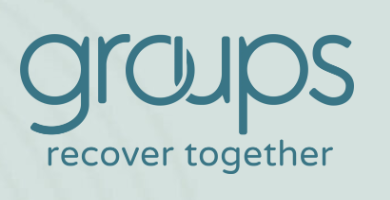Groups Recover Together
Overview
Groups Recover Together is an accredited substance abuse treatment center that provides outpatient treatment for men and women from 18+ years of age. As part of their special programs, Groups Recover Together treats clients who have experienced trauma. To help patients achieve sobriety, Groups Recover Together provides intake assessments. Afterward, patients receive telemedicine/telehealth therapy, substance use disorder counseling, and trauma-related counseling during treatment. Groups Recover Together is located in Nashua, New Hampshire, providing treatment for people in Hillsborough County, accepting cash or self-payment, medicaid, and state-financed health insurance plan other than medicaid.
Groups Recover Together at a Glance
Payment Options
- Cash or self-payment
- Medicaid
- State-financed health insurance plan other than Medicaid
- Private health insurance
Assessments
- Screening for tobacco use
- Comprehensive substance use assessment
- Screening for mental disorders
- Screening for substance use
Age Groups
- Young adults
- Adults
Ancillary Services
- Case management service
- Opioid use disorder clients only
Accreditations
Commission on Accreditation of Rehabilitation Facilities (CARF):

CARF accreditation is a globally recognized certification for rehabilitation and human service organizations. It signifies that an organization meets high-quality standards and is committed to providing top-level care. Achieving CARF accreditation involves a rigorous evaluation process, including on-site surveys. This accreditation enhances an organization's reputation, instills trust in clients and funders, and encourages ongoing excellence in the field.
Treatment At Groups Recover Together

Conditions Treated
Alcoholism:
Alcohol addiction is a disease that changes the way the brain works. It causes negative emotions, impulsive behavior, cravings and withdrawal symptoms. Treatment for alcohol addiction includes supervised detox, counseling and therapy, and support group participation. Rehabilitation does not cure alcoholism. Instead, it helps the individual manage their addiction, restore their functioning, and well-being.
Substance use treatment:
Substance use rehabilitation represents a holistic treatment strategy tailored to aid individuals grappling with drug or alcohol addiction. This comprehensive rehabilitation method encompasses two key aspects: first, addressing the physical dependency, often commencing with detoxification, and second, tackling the psychological triggers through a range of therapeutic techniques. The ultimate aim is to empower individuals to attain and sustain sobriety while providing them with the necessary skills and coping mechanisms to successfully reintegrate into society and lead a life free from substance abuse.

Levels Of Care
Outpatient:
Outpatient treatment in a rehab center offers flexible therapy sessions, typically ranging from 1-3 hours per week, allowing individuals to continue daily activities while receiving care. In contrast, intensive outpatient programs demand a more rigorous commitment, often involving 9-15 hours weekly, providing a more immersive therapeutic environment without the need for inpatient stays.
Outpatient methadone/buprenorphine or naltrexone treatment:
Methadone maintenance treatment (MMT) is a comprehensive treatment program for individuals with opioid use disorder. It involves the long-term prescribing of methadone, a synthetic opioid, to patients in an effort to reduce or eliminate their use of illicit opioids, such as heroin. When provided at an appropriate dose and in conjunction with counseling and other support services, MMT can help to stabilize patients' lives, reduce illicit drug use, and lower the risks of drug-related harm, such as overdose and transmission of infectious diseases.
Regular outpatient treatment:
Regular Outpatient Treatment involves scheduled therapy sessions typically held on an outpatient basis, allowing individuals to receive essential support while maintaining their daily routines. These sessions usually range from one to three times per week, providing a flexible approach to recovery that accommodates the individual's needs and progress. It offers a structured environment for therapy and counseling, enabling individuals to address addiction or mental health issues while continuing to engage in their daily responsibilities.
Aftercare:
Finishing a drug or alcohol rehab program is just the beginning of the recovery journey. Aftercare focuses on establishing a long-term recovery plan, which encompasses continuous support. This might involve options such as residing in sober living homes or halfway houses, receiving career guidance, and connecting the individual with community support groups like Alcoholics Anonymous (AA) or Narcotics Anonymous (NA).

Treatment Modalities
Telemedicine/telehealth therapy:
Telehealth provides a secure and handy way to access behavioral health care from your home. It eliminates the need for travel, time off work, or organizing childcare. A range of services, including individual therapy, group sessions, and monitoring for anxiety and depression, are available remotely. Rest assured, telehealth video sessions are not recorded, ensuring your information remains as confidential as in-person consultations.
Substance use disorder counseling:
Substance use disorder counseling treatment modalities refer to various approaches and methods used in the counseling and treatment of individuals with substance use problems. This can include individual therapy, group therapy, cognitive behavioral therapy, motivational interviewing, family therapy, and 12-step programs. The goal is to help the individual overcome their substance use, develop healthy coping skills, and lead a fulfilling life in recovery.
Trauma-related counseling:
Trauma therapy addresses the underlying emotional and psychological wounds that may contribute to an individual's substance abuse. Through a combination of psychotherapy and coping strategies, individuals are aided in processing past traumatic experiences, understanding the impact of trauma on their current behavior, and developing healthier coping mechanisms. This holistic approach fosters resilience, aids in the resolution of trauma, and is fundamental in supporting individuals on their path toward sustained recovery from addiction.
Smoking/vaping/tobacco cessation counseling:
Vaping Cessation Counseling is a supportive process aimed at assisting individuals who wish to quit vaping. Through personalized sessions, trained counselors help identify triggers, manage withdrawal symptoms, and develop coping strategies. This service empowers individuals to break free from vaping addiction and work towards achieving a healthier lifestyle.
Group counseling:
Group counseling provides a supportive environment where individuals share personal experiences and insights, under the guidance of a professional counselor. It facilitates self-awareness, fosters interpersonal learning, and helps members work through personal and relational challenges. Through shared dialogue and reflection, individuals learn coping strategies, gain emotional support, and experience personal growth within a communal setting.
Relapse prevention:
The Relapse Prevention Model is a cognitive-behavioral approach aimed at minimizing or preventing relapses in individuals recovering from addictive behaviors. It incorporates strategies for recognizing and managing high-risk situations and triggers, enhancing self-efficacy, and developing coping skills. Through education, awareness, and self-monitoring, individuals are empowered to maintain their progress and avoid reverting to unhealthy behaviors. This model is essential in promoting long-term recovery and supporting individuals on their journey towards a substance-free life.
Individual psychotherapy:
Individual Psychotherapy provides a private, one-on-one setting where clients can explore and address their personal challenges, behaviors, and feelings related to addiction and recovery. With the guidance of a trained therapist, clients work to uncover the root causes of their substance use, develop coping strategies, and build a foundation for long-term recovery and personal growth.
Ancillary Services
Languages
- Sign language services for the deaf and hard of hearing
Additional Services
- Pharmacotherapies administered during treatment
- Mentoring/peer support
- Drug or alcohol urine screening
Special Programs
- Clients who have experienced trauma
Contact Information
DISCLAIMER: The facility name, logo and brand are the property and registered trademarks of Groups Recover Together, and are being used for identification and informational purposes only. Use of these names, logos and brands shall not imply endorsement. BetterAddictionCare.com is not affiliated with or sponsored by Groups Recover Together.


